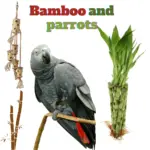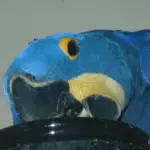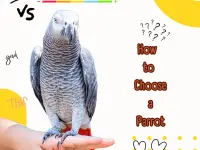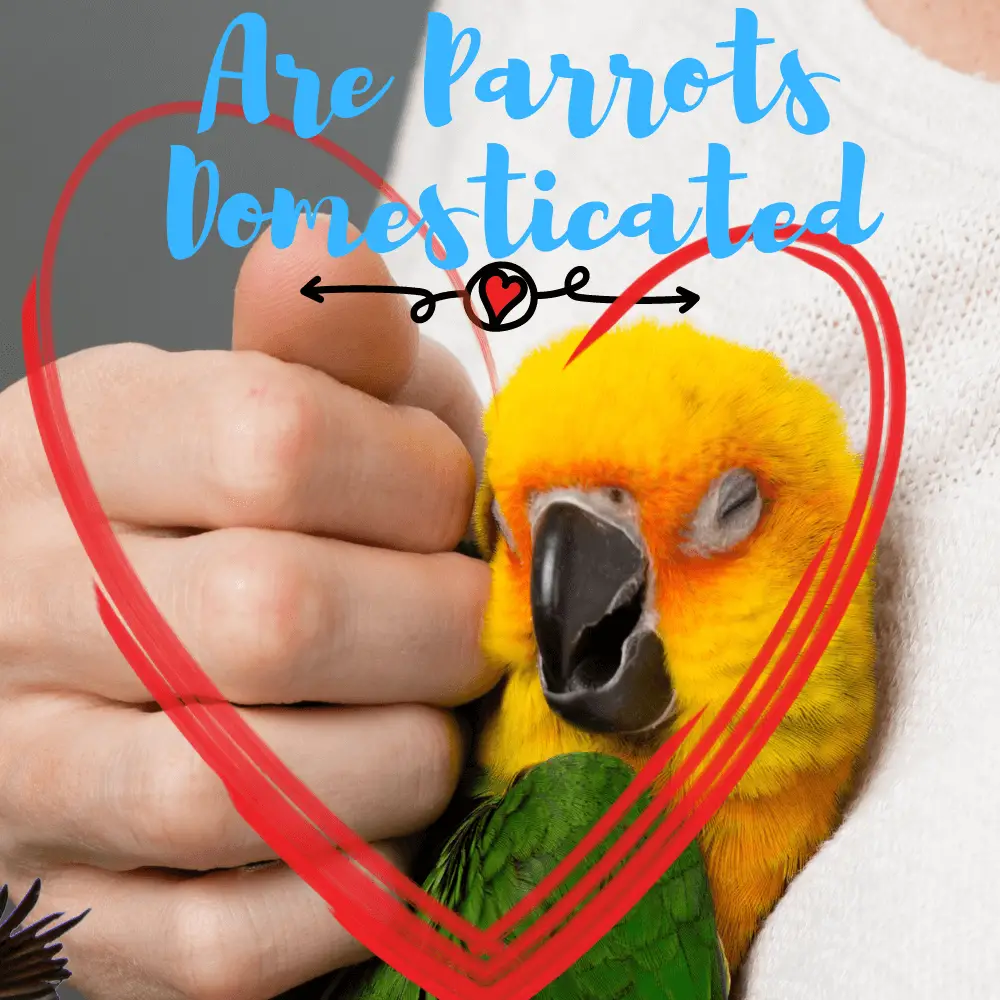
Are parrots domesticated:Exotic birds are gregarious animals whose longevity can reach 40 years and more for some species. They are animals genetically made to fly and live in a social cell that resembles them.
Birds are fascinating for their beauty, their intelligence, their organization in societal mode and, in some species, for their great talent as singers or imitators of human sounds and voices. The parrot, on the other hand, is a tame, gregarious, undomesticated pet whose lifespan for some can be almost equivalent to the lifespan of humans.
For several decades, we have been experiencing an upsurge in the popularity of psittaciformes (parrots and parakeets) as pets. Private breeding has grown in importance, thereby developing a whole market of derivative products trying to meet the needs of the captive life of these animals.
Are parrots domesticated
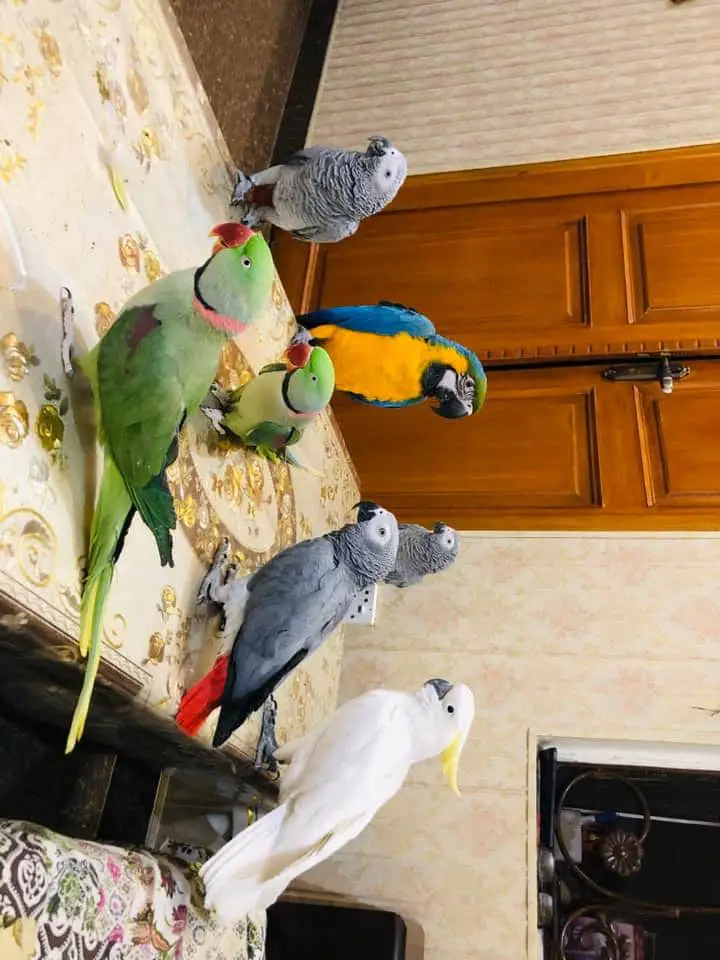
Understand what life is like with a domestic bird
But what does it mean to live with a parrot if we want to respect its biological needs and ensure that our animal will be happy, to make us happy?
We will guess, at first, that parrots are not the easiest pets to live with and are probably the ones that require the most care, that have the greatest needs and that require significant financial investments. For their part, the Passeriformes (finches and canaries) are frequently excellent singers without however being too noisy, and they are imbued with an unparalleled dynamism and joie de vivre. These small birds are independent and do not tame easily. They are consequently less demanding than the psittaciformes. Observing and listening to them is always a source of great pleasure for those who have the chance.
Make your choice
Although it is commonly recommended to do a long reflection on our lifestyle before getting a pet, love at first sight exists and will exist, and unfortunately too often in the case of so-called cage and aviary parrots
Once our choice has been made, we will obviously have to consider where to obtain the animal. You can go directly to a breeder or go through a pet store. It’s also a great idea to seriously consider buying the animal from a shelter, which is overflowing with abandoned birds that are badly in need of a second chance.
The first days with his new feathered friend
The first days of adopting a bird will probably be very calm since the bird will observe its environment for a long time and will methodically study your habits before adapting to “its universe”, which is also yours. We must also give them time to fully understand their new environment, at their own pace.
You should know that birds are naturally very active, curious, playful, sociable, and also very intelligent. We must therefore constantly strive for creativity to nourish their intellectual and emotional needs. Their living environment must be adapted to the needs of each species. The bigger the beak, the more strongly it gnaws, and when it comes to making us understand what it wants, the more effective the bite will be. Also, it must be remembered that birds do not accept boredom: they can become very self-destructive and suffer from depression.
One is good, but two is better!
Gregarious is a qualifier that comes up constantly in the case of birds, parrots. According to Larousse, it is: “an animal species that lives in a group or in a community, but without a social structure. Which means that birds, parrots, are happy in groups. They don’t live alone. They must live with other congeners.
This consequence must then be seriously considered. The same is true for several domestic species. On the other hand, in birds, the simple necessity of grooming the feathers obliges the sharing of daily life with a congener. It is also not recommended that the human companion become the congener. This situation, although frequent, is often the source of many difficulties of human bird companionship and which too often causes the abandonment of his bird, which will tend to become very dependent on his favorite human. Birds are loyal. Several species of parrots unite for life.
Give him some freedom
Birds are the symbol of freedom, the vastness of the sky is in their genes and we cannot give them their freedom. To allow us to live with these magnificent animals, we have to put them in cages and they can only leave our residences too little.
Birds therefore need freedom, contrary to the image projected for centuries of birds living in tiny cages. If they live in cages, it is because we want to appropriate them as pets, against their freedom!
We must therefore seriously consider the need to be able to make our birds fly safely and clearly define the living space that will be assigned to the flight and games of the birds. Even if we adhere to the principle of the size of the wings, a bird understands in its head that it has the power to fly… A bird will flap its wings, even the wings trimmed. The birds then require a sufficiently large space, not only to open their wings, but to play, move, eat, destroy. Moreover, it must be understood that to play for a bird is frequently to destroy.
The play-cage environment will therefore be very important, both for you and for your birds. Your happiness in living with your pet birds is directly proportional to the respect you will have in meeting their needs. You will necessarily have to take into account the type of bird you are thinking of. The larger the bird, the larger its play area should be.
However, the opposite is not true: a small bird has as much power to fly as a large bird. Just think of the distance a hummingbird can travel between different countries. The canary and the finch are of the same caliber.
Have a good starter kit
In addition to these main aspects to consider when choosing a bird as a pet, several other points are just as important to optimize the experience of life with birds. In addition to the selection of appropriate cages and accessories, a large selection of toys that attract and maintain interest is essential. The starter kit for a domestic bird must therefore take all these aspects into account, not to mention a healthy basic diet which will include, depending on the species, fresh food (fruits and vegetables), seeds, a mixture of feed or extruded pellets.
The behaviour
Birds are loyal animals and are also impatient and punctual. These qualities have many consequences on the daily life of humans. Routine is their security. It is therefore very difficult for a bird to repeatedly change homes. Their talent as keen observers of a new situation leads us to claim that birds adapt well to novelty, when in reality these new situations cause them great stress. We must therefore remember their secret nature: they are prey, they are very prone to fear and are always ready to fly away to save themselves from danger.
All these misinterpretations of bird behavior cause many dropouts. Birds are treated just as badly as other domestic animals. Captivity of birds facilitates unpleasant behaviors. They are easily abused animals. This is why the captivity of the birds must be adapted to their needs, to the magnitude of their need to fly ,so how Teaching a parrot to fly outside?
For a long life together
The reality of the longevity of these animals, added to their specific needs, are factors that too often force their owners to abandon them for various reasons related to health problems, aging, or ignorance of the conditions of cohabitation.
We must therefore foresee the future of our life companions. Even if we entrust the responsibility of our pet to a third party through a will in the hope of ensuring long-term security, we must realize that this good heir will be just as affected by the phenomenon of precariousness. of life.
Finally, you have to think about it before adopting a domestic bird under your roof, carefully consider all that this implies in order to make a wise choice. There are several criteria to take into account to ensure that their life, like ours, is the best!
Are parrots domesticated
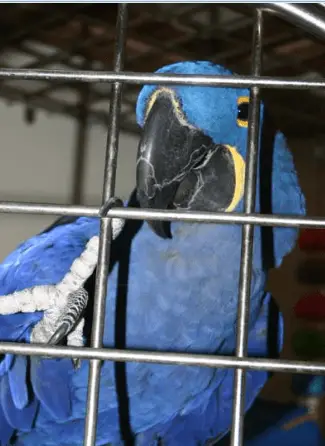
Captivity
This is when a wild animal is taken into captivity. Adaptation is more or less easy depending on the age of the animal and the environment. We could note variable stresses. For example, physiological stress (light, climate), food (distribution of resources, social and defense (fear of other animals). A good knowledge of the behaviors and needs of the species is necessary to provide acceptable captive conditions. In general, animals need: to feed themselves, to eliminate, to sleep, to play, to relax, to reproduce, to establish a social bond, to communicate and to have a habitat.
Animals have the same needs whether they are in the wild, in captivity or domesticated. Some behaviors can never be stopped. On the other hand, humans can exercise some control by teaching the animal the right way to act.
Domestication
Definition: process by which humans structurally and physiologically modified certain species of animals and their behaviors by maintaining them in or near human dwellings and by giving birth from these individuals, those who seemed most able to fulfill the objectives.
The economic objectives are:
- Prolonged maternal behavior
- Longevity
- Docility
- Good growth rate. Optimal performance
- Easier adaptability
Not all species can be successfully domesticated.
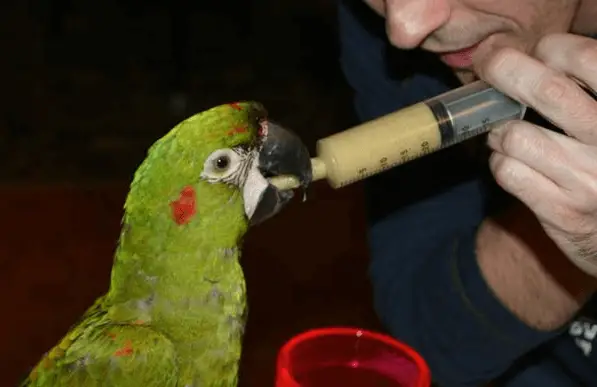
Are parrots domesticated
Certain characteristics favor domestication
- Social organization
- Sensitive period of socialization
- Ability to reproduce under domestic conditions
- Lack of agility
- Habitat flexibility
- Reduction of aggressiveness through physical treatment (castration, dehorning, etc.)
What Causes Behavior Problems?
Human ignorance that practices herding, poor understanding of behavior, anthropomorphism, mistreatment, isolation, lack of handling, lack of stimulation, type of habitat, source or type of food.
What are the behaviors resulting from such parrot breeding?
Difficulty reproducing, stereotypical behavior, excessive fear, anxiety, dread, depression.
DO PARROTS MAKE GOOD PETS? | 7 Things to Consider Before Getting Your First Parrot
SOURCE:Flying Fids

